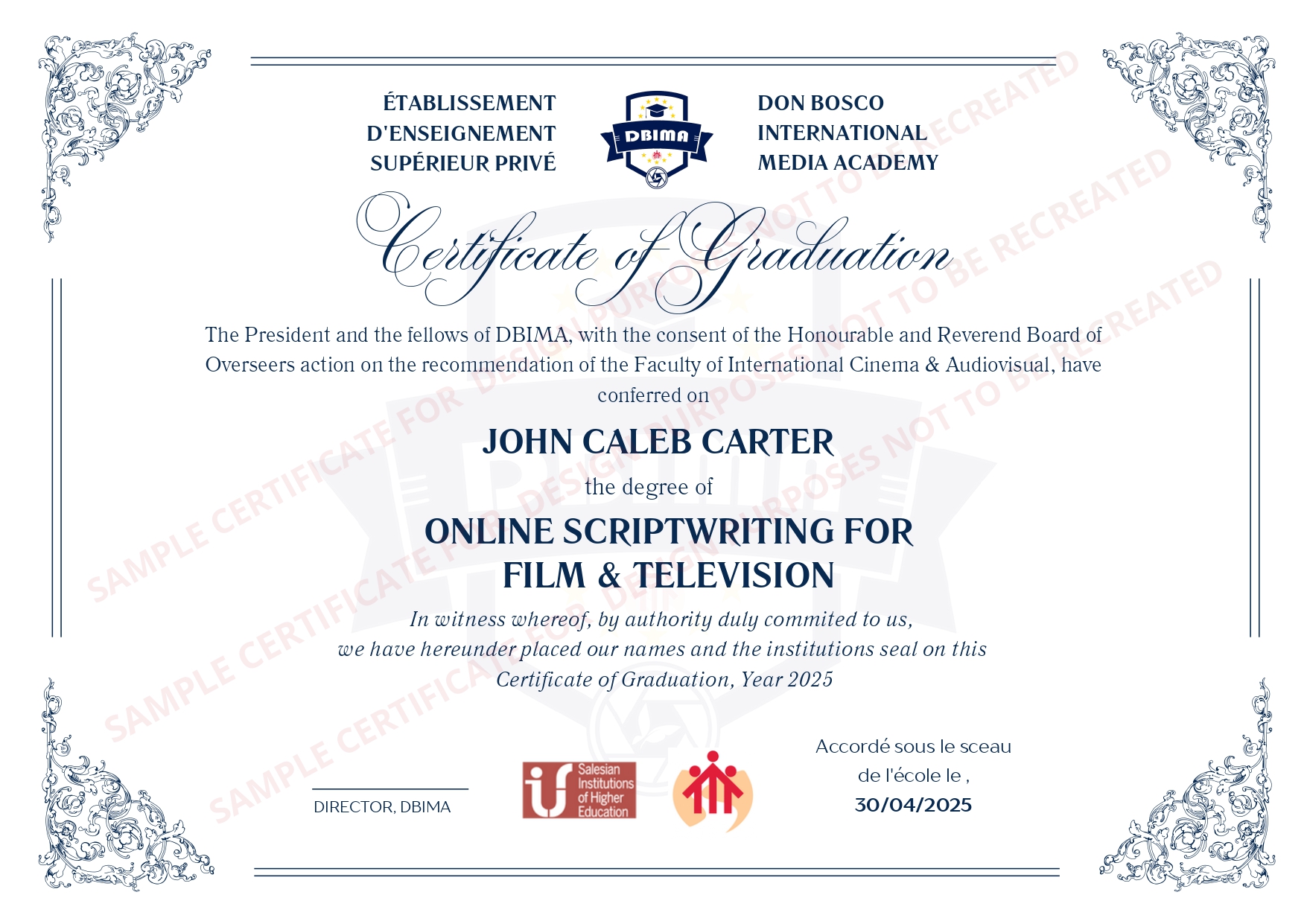About this program
Your Script Writing Journey
Course Outcomes
Course Takeaway
Exclusive Opportunity
Expand Your Academic Possibilities
What you'll learn
- Graduates will understand and apply professional scriptwriting practices.
- Each student will complete a short film script that meets industry standards.
- Students will leave with a portfolio that demonstrates their scriptwriting skills to potential collaborators.
- Graduates will be equipped to write for cinema and television professionally.
Meet your instructors
Author and Director

Abner Maximus Fernando
Abner Maximus Fernando is an award-winning filmmaker and entrepreneur based in Paris, specializing as a scriptwriter, director, and producer. He actively contributes to English and French productions as a casting director, script doctor, 1st AD, and production manager. With a background in commerce and international relations from his studies in the Scandinavian and Baltic regions, Abner combines his artistic vision with strong administrative skills to create impactful narratives that resonate globally.
Who is this for?
Aspiring Screenwriters & Storytellers, Film, Media, and Communication Students, Independent Filmmakers & YouTubers, Actors & Theatre Artists, Novelists, Bloggers & Content Writers, Entertainment Industry Professionals, Freelancers & Creative Professionals, International Learners Interested in European Film Education

